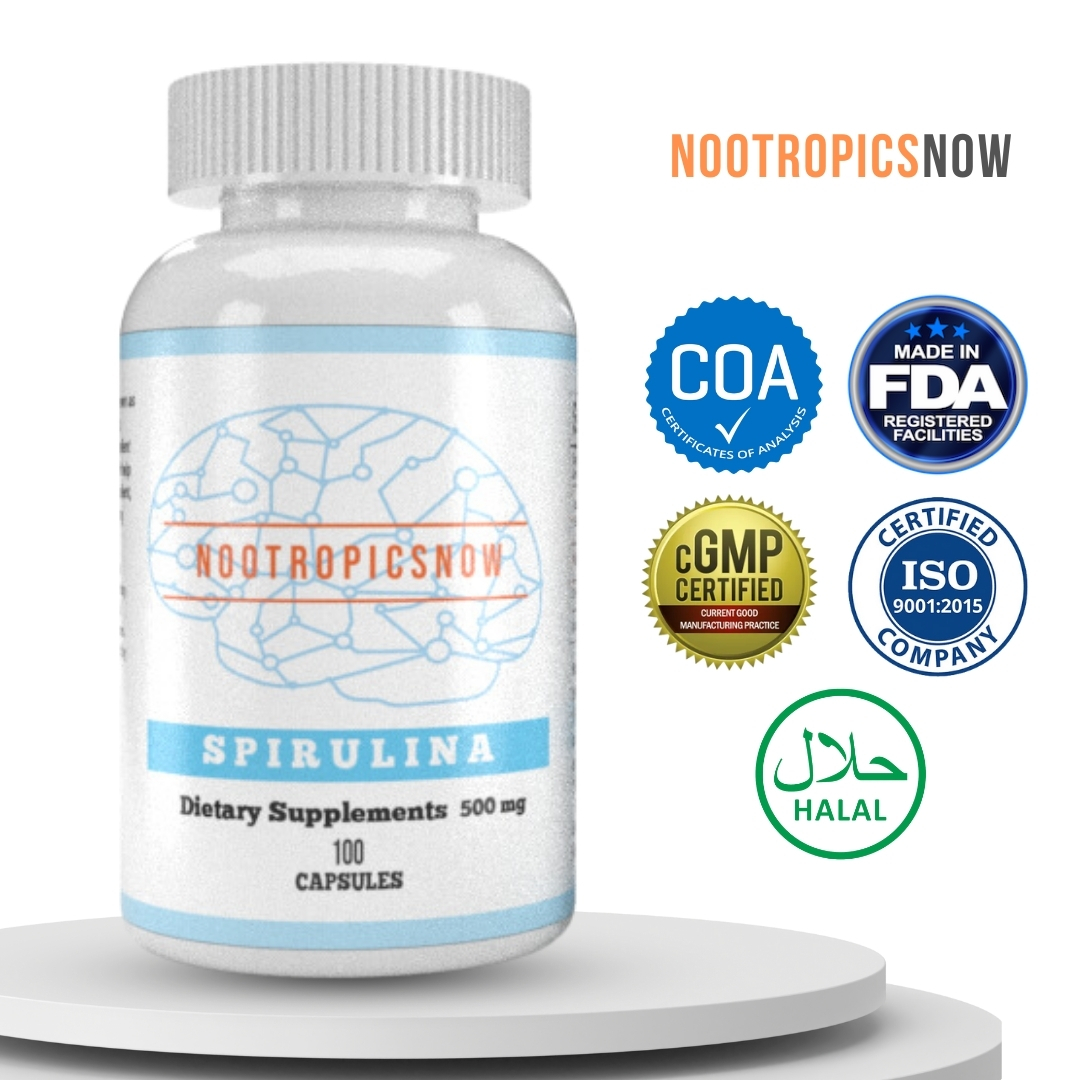Caffeine & Theanine Ratio: Optimal Blend?

Caffeine to Theanine Ratio: Optimizing Cognitive Benefits

The synergistic pairing of caffeine and L-theanine has gained immense popularity as a natural method for cognitive enhancement. While caffeine provides an energy boost and heightened alertness, L-theanine promotes relaxation and focus. However, the key to unlocking the full potential of this combination lies in understanding and implementing the optimal caffeine to theanine ratio. This article delves into the science behind this pairing, exploring the various ratios, their benefits, and practical applications for boosting cognitive performance and overall well-being.
Understanding Caffeine and L-Theanine
Before delving into the specifics of the caffeine to theanine ratio, it’s crucial to understand each compound individually and how they interact to produce their combined effects.
Caffeine: The Energy Booster
Caffeine is a naturally occurring stimulant found in coffee beans, tea leaves, and cacao pods. It works by blocking adenosine, a neurotransmitter that promotes relaxation and sleepiness. By blocking adenosine, caffeine increases alertness, reduces fatigue, and enhances cognitive function. However, caffeine can also lead to side effects such as anxiety, jitters, and insomnia, especially when consumed in high doses.
L-Theanine: The Relaxing Amino Acid
L-theanine is an amino acid primarily found in green tea leaves. It promotes relaxation without causing drowsiness, and it can also improve focus, reduce anxiety, and enhance cognitive performance. L-theanine achieves these effects by modulating neurotransmitter activity, particularly by increasing alpha brain waves, which are associated with a relaxed but alert state.
The Synergistic Effect: Caffeine and L-Theanine
The true power of caffeine and L-theanine lies in their synergistic interaction. When combined, L-theanine can mitigate the negative side effects of caffeine while enhancing its positive effects. This combination results in a smoother, more sustained energy boost, improved focus, and reduced anxiety, making it an ideal tool for cognitive enhancement. The most commonly recommended ratios maximize this synergistic effect.
Optimal Caffeine to Theanine Ratios: Science and Application
Research suggests that specific caffeine to theanine ratios are more effective than others for achieving optimal cognitive benefits. The most widely studied and recommended ratios include 1:2 and 1:1, with variations depending on individual sensitivity and desired effects.
1:2 Ratio: Calm Focus
The 1:2 caffeine to theanine ratio, typically involving 100mg of caffeine and 200mg of L-theanine, is arguably the most popular and well-supported ratio. It’s widely recognized for promoting a state of “calm focus” by harnessing the energizing effects of caffeine while minimizing its potential side effects. Consequently, this ratio is suitable for individuals seeking enhanced focus without the jitters or anxiety often associated with caffeine.
Benefits of the 1:2 Ratio
Practical Applications of the 1:2 Ratio
This ratio is particularly beneficial for:
1:1 Ratio: Balanced Energy
The 1:1 caffeine to theanine ratio, such as 100mg of caffeine and 100mg of L-theanine, offers a more balanced approach. It provides a moderate energy boost and focus enhancement with a slightly reduced calming effect compared to the 1:2 ratio. This ratio is suitable for individuals who are more sensitive to the effects of caffeine or prefer a less pronounced calming effect. It has a similar impact on cognitive ability.
Benefits of the 1:1 Ratio
Practical Applications of the 1:1 Ratio
This ratio is well-suited for:
2:1 Ratio: Focused Alertness
While less commonly researched than the 1:2 and 1:1 ratios, a 2:1 L-theanine to caffeine ratio (e.g., 200mg of L-theanine and 100mg of caffeine) can provide unique benefits. This ratio emphasizes the calming effects of L-theanine while still providing a moderate energy boost from caffeine. It may be particularly useful for individuals who are highly sensitive to caffeine’s stimulatory effects or those who prioritize relaxation and stress reduction above all else.
Benefits of the 2:1 Ratio
Practical Applications of the 2:1 Ratio
Consider this ratio for:
Practical Applications of the 1:2 Ratio
This ratio is particularly beneficial for:
1:1 Ratio: Balanced Energy
The 1:1 caffeine to theanine ratio, such as 100mg of caffeine and 100mg of L-theanine, offers a more balanced approach. It provides a moderate energy boost and focus enhancement with a slightly reduced calming effect compared to the 1:2 ratio. This ratio is suitable for individuals who are more sensitive to the effects of caffeine or prefer a less pronounced calming effect. It has a similar impact on cognitive ability.
Benefits of the 1:1 Ratio
Practical Applications of the 1:1 Ratio
This ratio is well-suited for:
2:1 Ratio: Focused Alertness
While less commonly researched than the 1:2 and 1:1 ratios, a 2:1 L-theanine to caffeine ratio (e.g., 200mg of L-theanine and 100mg of caffeine) can provide unique benefits. This ratio emphasizes the calming effects of L-theanine while still providing a moderate energy boost from caffeine. It may be particularly useful for individuals who are highly sensitive to caffeine’s stimulatory effects or those who prioritize relaxation and stress reduction above all else.
Benefits of the 2:1 Ratio
Practical Applications of the 2:1 Ratio
Consider this ratio for:
Scientific Evidence Supporting Caffeine and L-Theanine
Numerous studies have investigated the cognitive benefits of combining caffeine and L-theanine.
Practical Considerations
While the caffeine to theanine ratio offers promising cognitive benefits, it’s important to consider several practical factors to ensure safe and effective use.
Individual Sensitivity
Individuals vary in their sensitivity to both caffeine and L-theanine. It’s important to start with a lower dose and gradually increase it as needed, paying close attention to individual responses and side effects.
Quality of Supplements
The quality of caffeine and L-theanine supplements can vary significantly. Choose reputable brands that conduct third-party testing to ensure purity and potency.
Timing
The timing of caffeine and L-theanine consumption can affect its effects. It’s generally recommended to consume the combination in the morning or early afternoon to avoid disrupting sleep.
Cycling
Regular consumption of caffeine and L-theanine can lead to tolerance, reducing its effectiveness over time. Consider cycling on and off the combination to maintain its benefits.
Interactions
Caffeine and L-theanine may interact with certain medications or health conditions. Consult with a healthcare professional before using the combination, especially if you have any underlying health issues or are taking prescription drugs.
Dietary Sources
While caffeine and L-theanine are often consumed in supplement form, they can also be obtained from dietary sources. Coffee is a rich source of caffeine, while green tea is a natural source of both caffeine and L-theanine. Consuming these beverages can provide a milder cognitive boost without the need for supplements. For example, Matcha tea is a specific type of green tea that is known to be higher in L-Theanine than traditional green tea leaves. Therefore, it could be a great beverage option.
Optimizing Your Caffeine and L-Theanine Experience
To maximize the benefits of the caffeine to theanine ratio, consider the following tips:
The Future of Caffeine and L-Theanine Research
The synergistic pairing of caffeine and L-theanine is a promising area of research with significant potential for cognitive enhancement and overall well-being. Future studies may explore:
Conclusion: Harnessing the Power of the Caffeine to Theanine Ratio
The caffeine to theanine ratio offers a natural and effective way to enhance cognitive function, reduce anxiety, and improve overall well-being. By understanding the science behind this combination, exploring different ratios, and considering practical factors, individuals can harness its power to achieve their cognitive goals. As research continues to uncover the full potential of caffeine and L-theanine, it is poised to become an even more valuable tool for optimizing brain health and performance. Always consult with a healthcare professional before making significant changes to your diet or supplement regimen.
Optimizing Cognitive Performance: The Caffeine to Theanine Ratio
The strategic combination of caffeine and L-theanine has emerged as a popular method for enhancing cognitive function. This synergistic pairing offers a balanced approach, harnessing the energizing benefits of caffeine while mitigating its potential drawbacks through the calming influence of L-theanine. Understanding the optimal caffeine to theanine ratio is crucial for maximizing cognitive enhancement and minimizing unwanted side effects.
Understanding Caffeine and L-Theanine Individually
Before delving into the ideal ratios, it is essential to understand the individual properties and effects of caffeine and L-theanine.
Caffeine: The Stimulating Powerhouse
Caffeine, a widely consumed stimulant, exerts its effects primarily by blocking adenosine receptors in the brain. Adenosine is a neurotransmitter that promotes relaxation and drowsiness. By blocking adenosine, caffeine increases alertness, reduces fatigue, and enhances cognitive functions such as attention and reaction time. Additionally, caffeine can boost dopamine levels, contributing to feelings of motivation and well-being. However, excessive caffeine consumption can lead to several adverse effects, including:
L-Theanine: The Calming Complement
L-Theanine is an amino acid primarily found in green tea leaves. Unlike caffeine, L-theanine does not directly stimulate the nervous system. Instead, it promotes relaxation and reduces anxiety without causing drowsiness. Its calming effects are attributed to several mechanisms:
`markdown

View Product
`
The Synergistic Effect: Caffeine and L-Theanine Together
The combination of caffeine and L-theanine creates a synergistic effect, where the benefits of each compound are amplified while their individual drawbacks are minimized. L-theanine effectively counteracts the negative side effects of caffeine, such as anxiety and jitteriness, while allowing the cognitive-enhancing properties of caffeine to shine through.
Determining the Optimal Caffeine to Theanine Ratio
Research and anecdotal evidence suggest that specific caffeine to theanine ratios are more effective than others in achieving optimal cognitive benefits. Several ratios have gained popularity, each offering a slightly different balance of stimulation and relaxation.
`markdown
View Product-Nootropic-Brain-Immunity-Stress-Supplement-i.202321183.8809283407)
`
1:2 Ratio (Caffeine: L-Theanine)
The 1:2 ratio, where the dosage of L-theanine is twice that of caffeine, is arguably the most widely recommended and researched ratio. This ratio is often cited as the gold standard for achieving a balanced cognitive effect. For example, 100 mg of caffeine combined with 200 mg of L-theanine is a common and effective dosage. Studies supporting this ratio have demonstrated improvements in:
The 1:2 ratio is particularly well-suited for individuals who are sensitive to caffeine or prone to anxiety. The higher dose of L-theanine effectively counteracts the stimulating effects of caffeine, promoting a sense of calm and focus.
1:1 Ratio (Caffeine: L-Theanine)
An equal ratio of caffeine and L-theanine, such as 100 mg of each, can also provide significant cognitive benefits. This ratio offers a more balanced approach, providing a moderate level of stimulation alongside a moderate calming effect. While it may not be as effective at reducing anxiety as the 1:2 ratio, it can still provide a noticeable improvement in focus and attention without excessive jitters. This ratio is often preferred by individuals who are more tolerant to caffeine and seeking a slightly stronger energy boost.
`markdown

View Product
`
2:1 Ratio (Caffeine: L-Theanine)
A 2:1 ratio, where the dosage of caffeine is twice that of L-theanine (e.g., 200 mg caffeine and 100 mg L-theanine), is less commonly recommended but may be appropriate for individuals with a high tolerance to caffeine. This ratio provides a stronger stimulating effect but may also increase the risk of anxiety and jitteriness. It is essential to carefully monitor your response to this ratio and adjust the dosage accordingly. Individuals who are highly sensitive to caffeine or prone to anxiety should generally avoid this ratio.
Individual Experimentation
Ultimately, the ideal caffeine to theanine ratio is highly individual and depends on several factors, including:
It is recommended to start with a lower dose of both caffeine and L-theanine and gradually increase the dosage while monitoring your response. Keeping a journal to track your experiences, including the dosage, ratio, and any observed effects (positive or negative), can be helpful in determining the optimal combination for your individual needs.
Practical Applications and Dosage Guidelines
Once you have determined the ideal caffeine to theanine ratio for your individual needs, consider the following practical applications and dosage guidelines:
`markdown

View Product
`
Potential Side Effects and Precautions
While the combination of caffeine and L-theanine is generally considered safe, it is essential to be aware of potential side effects and precautions:
The Caffeine to Theanine Ratio: A Personalized Approach to Cognitive Enhancement
The caffeine to theanine ratio represents a powerful tool for optimizing cognitive performance. By understanding the individual effects of caffeine and L-theanine and experimenting with different ratios, individuals can personalize their approach to cognitive enhancement, achieving a balanced state of focused alertness without the negative side effects often associated with caffeine alone. Remember to start with a lower dose, monitor your response, and consult with your doctor if you have any concerns. With careful experimentation and a personalized approach, the caffeine to theanine ratio can unlock your cognitive potential and enhance your daily productivity and well-being.
`markdown
View Product
`
In conclusion, while the ideal caffeine to theanine ratio may vary based on individual sensitivities and preferences, the scientific consensus and practical experience suggest that a 1:2 ratio often provides the most balanced and beneficial effects. This combination effectively leverages the cognitive-enhancing properties of caffeine while mitigating its anxiety-inducing side effects, resulting in a state of focused alertness and improved overall cognitive performance. However, personalized experimentation and careful monitoring of your response are crucial for determining the optimal ratio that works best for your individual needs. The combination can be a valuable tool for enhancing productivity, focus, and mental well-being with a well-considered approach.


